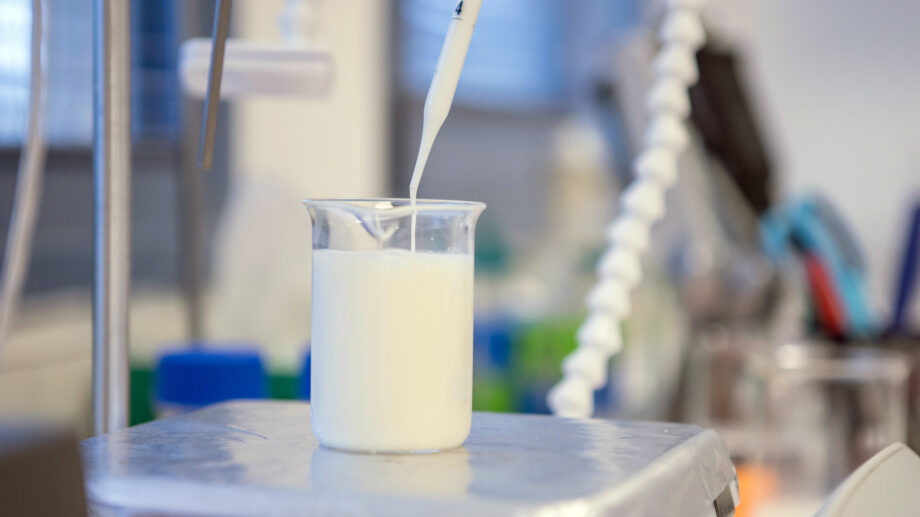- Biotech companies exploring milk alternatives beyond cows due to concerns over avian influenza and safety of raw milk
- Genetic engineers developing methods to produce milk without cows
- London nonprofit becoming a major supporter of geoengineering research, aiming to combat climate change by reflecting sunlight
- Meta updating privacy policy to use user data for AI training, prompting concerns over data usage and privacy
- US Supreme Court upholding access to abortion pills, significant ruling since 2022 Roe v Wade overturn
Exploring Milk Alternatives
In recent times, concerns about the safety of traditional cow’s milk have prompted a growing interest in milk alternatives among consumers. The recent outbreak of avian influenza on US dairy farms has raised questions about the wholesomeness of milk, leading many to consider options beyond the conventional dairy product. While the FDA assures the safety of commercial milk due to pasteurization, the rise in cases of infected dairy workers and mice drinking raw milk has spurred a search for healthier alternatives.
One of the most intriguing developments in the quest for milk alternatives is the biotech industry’s efforts to produce milk without cows. This innovative approach involves genetic engineering to create milk that retains all the nutritional benefits of traditional milk while eliminating the need for cows in the production process. This groundbreaking endeavor opens up a new realm of possibilities for those seeking a sustainable and animal-friendly option for their dairy needs.
Financial Backing for Geoengineering Research
On a different front, a London-based nonprofit organization is making waves in the field of geoengineering research by becoming one of the largest financial supporters of solar geoengineering initiatives. As the world grapples with the challenges of climate change, the concept of reflecting sunlight to mitigate global warming is gaining traction among scientists and environmentalists. The increased funding from foundations like the London nonprofit is expected to accelerate research efforts in this controversial field, allowing for a deeper exploration of the potential benefits and risks associated with geoengineering interventions.
Related Video

The surge in financial support for geoengineering research signifies a growing recognition of the urgent need to explore innovative solutions to combat climate change. With the backing of prominent organizations, scientists can delve into a range of lab experiments, modeling activities, and possibly outdoor trials to enhance our understanding of how solar geoengineering could shape the future of our planet. This influx of funding marks a significant milestone in advancing geoengineering research and fostering a more sustainable approach to environmental conservation.
Meta’s AI Training and Data Privacy
In the realm of technology giants, Meta, the parent company of social media platforms like Facebook and Instagram, has come under scrutiny for its data practices related to AI training. With the updated privacy policy allowing Meta to utilize user data for training its generative AI models, concerns have been raised about the implications for data privacy and intellectual property rights. As the debate over internet data scraping intensifies, users are encouraged to consider opting out of Meta’s AI training program if they have reservations about their personal information being used in this manner.
The evolving landscape of AI ethics and data privacy underscores the need for clear regulations and guidelines to govern the collection and utilization of user data by tech companies. While the legal framework around data practices continues to evolve, individuals can take proactive steps to protect their privacy by understanding how their data is being used and exercising their rights to opt out of AI training programs like the one implemented by Meta. By staying informed and engaged, users can play a crucial role in shaping the future of data privacy in the digital age.
The Quest for Wildfire-Resistant Homes
Amidst the backdrop of escalating wildfires in the US West, the search for innovative solutions to protect homes and communities from fire tragedies has gained urgency. With each devastating wildfire, officials and residents alike are confronted with the need for new strategies and technologies to enhance fire resilience in high-risk areas. From low-cost, low-tech interventions to social initiatives aimed at fostering community resilience, the quest for wildfire-resistant homes represents a multifaceted endeavor to safeguard lives and property in fire-prone regions.
The challenge of building wildfire-resistant homes extends beyond engineering solutions to encompass broader societal changes and community engagement. While advancements in materials science offer promising avenues for enhancing fire protection, the real test lies in fostering a culture of preparedness and resilience among residents. By combining technological innovations with social initiatives, communities can work towards creating a safer and more resilient environment in the face of escalating wildfire threats.
Links to additional Resources: